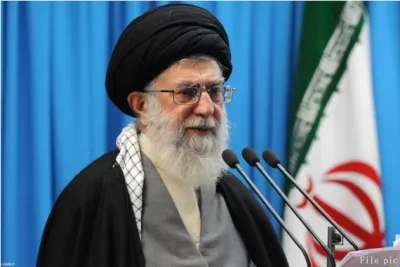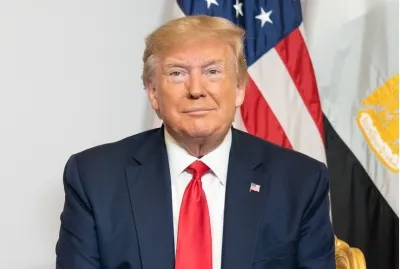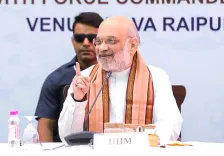Did Iran's Supreme Leader Deny Sending a Message to the US Through Third Parties?

Synopsis
Key Takeaways
- Khamenei denies rumors of sending messages to the US.
- Claims labeled as fabrications by Iranian leadership.
- Focus on regional cooperation emphasized.
- Recent military actions exacerbate tensions.
- Ongoing discussions about nuclear program remain critical.
Tehran, Nov 28 (NationPress) Ali Khamenei, the Supreme Leader of Iran, has categorically dismissed recent allegations as “fabricated rumors”, suggesting that Tehran communicated a message to the United States via third countries.
During a televised address on Thursday night, Khamenei refuted claims by Western media that Iranian President Masoud Pezeshkian had sent a message to Saudi Crown Prince Mohammed bin Salman Al Saud ahead of the latter's trip to the US. The reports indicated that this message was intended for Washington, according to the Xinhua news agency.
“They create rumors claiming that the Iranian government has sent a message to the United States through another country, which is pure deception and absolutely did not occur,” stated Khamenei.
Media reports mentioned that Pezeshkian's letter conveyed that Iran does “not seek confrontation”, aims to enhance regional cooperation, and is “open to resolving the nuclear dispute through diplomacy, provided its rights are guaranteed.”
In his address, Khamenei sharply criticized Washington for its support of Israel’s “wars and crimes” in West Asia, accusing the US of exacerbating global conflicts for strategic advantages.
Officials from Iran previously emphasized that Pezeshkian's communication with the Saudi crown prince focused solely on bilateral matters.
Tehran and Washington engaged in five rounds of indirect discussions, mediated by Oman, regarding Iran's nuclear program and US sanctions from April to June, with a sixth round anticipated before Israel conducted surprise strikes on several sites in Iran, resulting in casualties among senior commanders, nuclear scientists, and civilians. In retaliation, Iran launched missile and drone attacks.
On June 22, US forces targeted Iran's nuclear sites in Natanz, Fordow, and Isfahan, prompting Iran to strike the US Al Udeid Air Base in Qatar the following day. A ceasefire between Iran and Israel was established on June 24.









